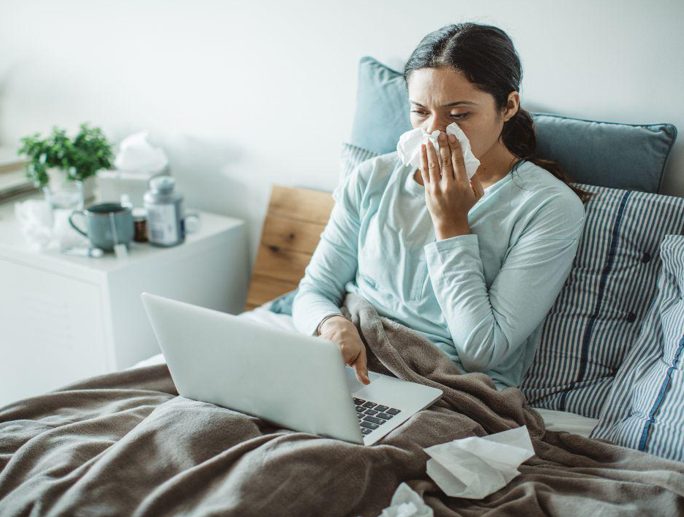"
Trips to the pumpkin patch, falling leaves, and Thanksgiving feasts aren’t the only thing on many people’s mind this fall season. For allergy sufferers, they’re probably trying to figure out how to cope with their runny nose and itchy eyes all season long! Mold and ragweed pollen are some of the worst allergens in the air this time of year, but there’s much more than that floating around outside. There are many allergy triggers and terms that even the most experienced allergy sufferers don’t know, so let’s take a closer look at a few.
Indian Summer
The Indian summer is something that most people look forward to as the winter months approach. A week of warmth before the cold takes over entirely, but what does that mean for allergy sufferers? The warm temperatures often cause a spike in humidity, which allows mold to grow and be released into the air rapidly. Dry and windy air during an Indian summer also carries allergens, just like it does during the winter months. If you’re typically only an allergy sufferer in the summer months, beware of the Indian summer!
Avoid the Leaves
While jumping in piles of leaves might look fun, it’s a bad idea for allergy sufferers. The same can be said for raking the leaves throughout fall months. Leaves carry pollen and mold which will be thrown back into the air once the leaves are collected or moved. If possible, have a friend or family member do the raking for you. If you have to rake yourself, it’s a good idea to invest in a mask to wear when raking leaves or mowing for the final time.
Hay Fever Doesn’t Just Happen During Summer
Hay fever is often thought of as summertime allergies, but really, the term just refers to the usual seasonal allergy symptoms. Itchy eyes, runny nose, and irritated sinuses all fall under the category of hay fever symptoms. Ragweed is one of the most common triggers of these symptoms. Ragweed continues to be an allergen in the air until the first hard freeze. That means that just because summer is over, your allergies probably aren’t! If you take seasonal allergy medication during the summer months, it’s a good idea to talk with your doctor about continuing treatment through the fall at least until the first hard freeze happens. You may even be able to receive allergy shots for ragweed and other seasonal allergens to improve your symptoms in the future.
"


